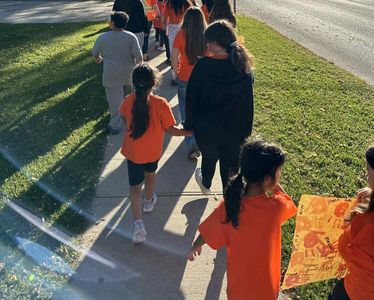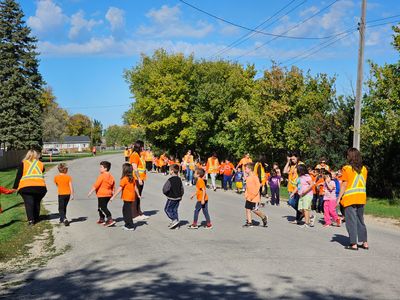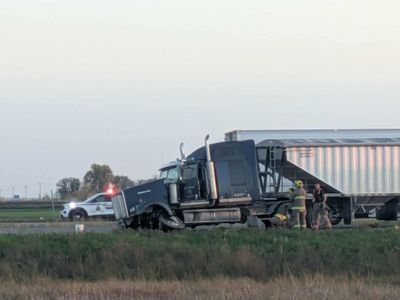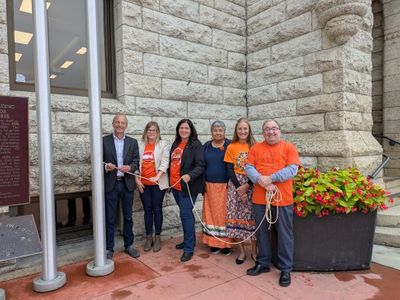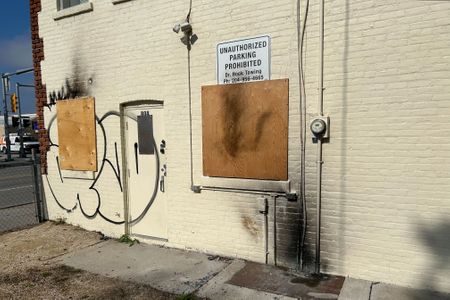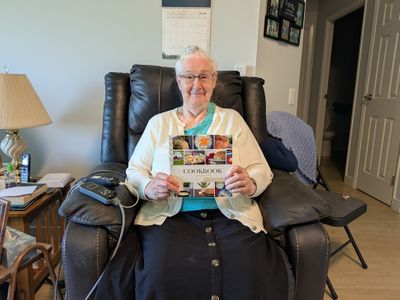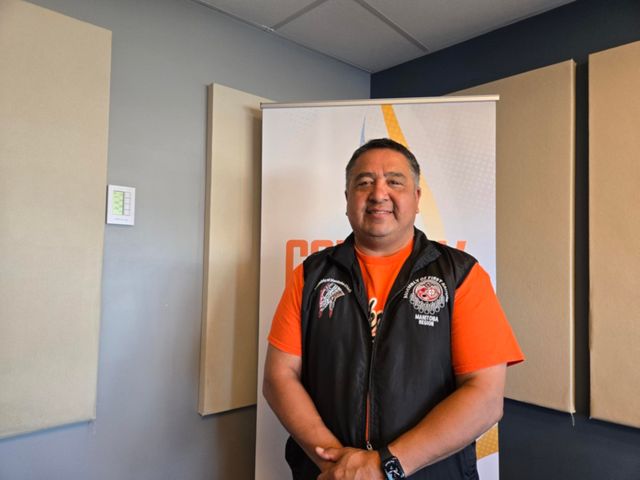Local News
Starts with kindness: A Chief's raw truth about reconciliation and responsibility
As Canada marks the National Day for Truth and Reconciliation, Chief Donald Smoke of Dakota Plains First Nation offers a deeply personal and candid reflection on what the day means for Indigenous communities, and what it must mean for all Canadians. "For me personally, I have a very deep connection to it," said Chief Smoke. “Both my parents went to residential school, so I've heard the stories. If anybody knew my dad (Chief Orville Smoke), you'd know he had a heart of gold and he wouldn't say things just to say them. I believe those stories to be true." The legacy of residential schools continues to impact Dakota Plains and other First Nations communities in profound ways. Education, once used as a tool for cultural erasure, remains a complicated subject. "For the longest time, education was not a priority, just due to what had happened in the past," Smoke explained. "A lot of our elders didn't have faith in the Western style of education. That's led to low graduation rates, low employment rates, social ills that affect our communities to this day." But Smoke emphasizes that healing is possible. And he believes the path forward lies in truth, and courage. "You know, before anybody can reconcile, I think they have to take a look at the truth. Sometimes that's a hard pill to swallow," he said. "We have our Seven Teachings, and one of the biggest our people lean on is courage. That teaching, symbolized by the bear, gets us up every day and gives us strength to make a difference for our children and families." Chief Smoke also sees promise in the role education can play in reconciliation, if done right. "Education got us into this mess. It's been said it'll be education that gets us out," he said. "We need schools to be safe places for our kids, where they feel loved and cared for. That means including culture and bringing elders into our schools. That cultural input is so important." While progress has been slow, 10 years after the Truth and Reconciliation Commission released its Calls to Action, Chief Smoke believes the momentum is building. He commended the Manitoba government for declaring September 30 a statutory holiday and praised the City of Portage la Prairie for actively working with local First Nations through the Community Economic Development Initiative (CEDI). "Portage has come a long way. The history between First Nations and the city wasn't always great, but now we're seeing real efforts to bring culture and understanding into the community," Smoke said. "Events like powwows are huge opportunities for people to learn." He also stressed the importance of moving beyond symbolic gestures and more education. "Governments and institutions need to continue pushing for curriculum that includes Indigenous history," he said. "When I was in school, there was nothing. There's some attempt now, but a lot more can be done." For survivors and their families, justice starts with simply being heard. "It's about providing safe spaces to speak and for others to listen, without judgment," he said. "Even if you don't believe the stories, it doesn’t take much to be kind." And to the next generation, both Indigenous and non-Indigenous, his message is clear: "Work together. Hear each other. Use our history in a positive way, not a negative one." As for those looking to learn more, Smoke recommends visiting the Portage la Prairie Residential School Museum. "Go talk to Lorraine," he said with a smile. "There's a lot of good information there. Some of it's hard to hear, but it's important people see it, because it's the reality." As Canadians reflect on the meaning of Truth and Reconciliation, Chief Donald Smoke's words serve as both a reminder and a call to action: reconciliation begins with truth, empathy, and a willingness to listen. Real change will require more than a single day of recognition, it will require year-round commitment from individuals, communities, and institutions alike. "Be kind. Be empathetic. Be sympathetic," Smoke said. "That's how we move forward, together."
